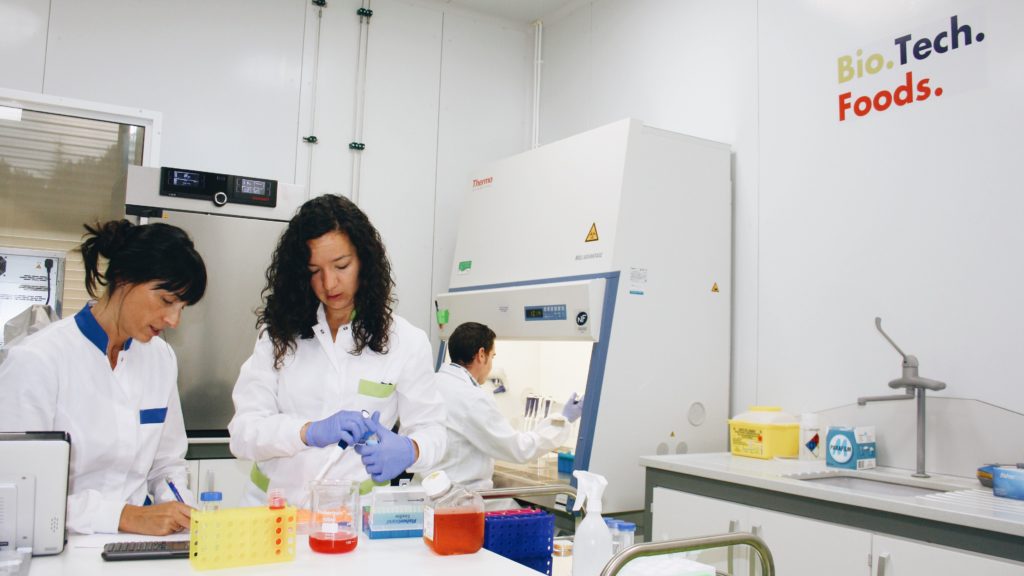Biotech Foods is leading a €5.2 million (approximately $6.3 million) lab-grown meat project partially funded by the Spanish government.
The San Sebastián-based biotech company has produced its own cell-based pork under its flagship company Ethicameat since 2017. The new CULTUREDMEAT project aims to continue investigating meat produced via cellular agriculture and develop further sustainable, slaughter-free products.
Biotech Foods leads the technological aspect of the R&D initiative, which also includes seven other entities including meat producers such as Argal and Martínez Somalo. Also attached are DMC Research, BDI Biotech, Neoalgae, BTSA, and Agrowingdata. The project involves additional collaboration with 10 research organizations.
The total budget of CULTUREDMEAT amounts to €5.2 million, of which The Spanish Ministry of Science granted €3.7 million. In October, Biotech Foods’ Meat4All project received €2.7 million in funding from the EU. It aims to increase production, minimize cost, and bring lab-grown meat, in general, closer to the market.
A press release sent to LIVEKINDLY reads: “The biggest challenge for the sector at the moment is the industrial scale that allows producing sufficient volumes for commercialization.”
Alternative proteins and cultured meat
Lab-grown meat, also referred to as cell-based meat or cultured meat, involves the in vitro cultivation of cells.
Typically, scientists harvest these from animals themselves, significantly reducing — but not removing — animal welfare concerns in protein production. Biologically, lab-grown meat really is traditional animal protein, but without the need for slaughter.
Cell-based agriculture also reduces the impact of protein production on the environment. It minimizes greenhouse gas emissions and eradicates much of the need for natural resources.
“Alternative proteins have been developed to create a more balanced protein market,” BioTech Foods CEO and co-founder Iñigo Charola told FoodIngredientsFirst. “Cultivated meat will allow us to have a more sustainable system with less GHG emission and a better use of natural resources like water and land.”
The process also allows scientists to work directly with the nutritional content of lab-grown meat. In the press release, Biotech Foods specifically said that the CULTUREDMEAT project also aims to create meat products that specifically target leading health issues such as high cholesterol and colon cancer through its ingredients and composition.
In Western countries — and Spain, in particular — the consumption of red meat is linked with major diseases such as colon cancer. By working on healthy lipids (such as fat), the project could help mitigate the impact of diet-related illness.


